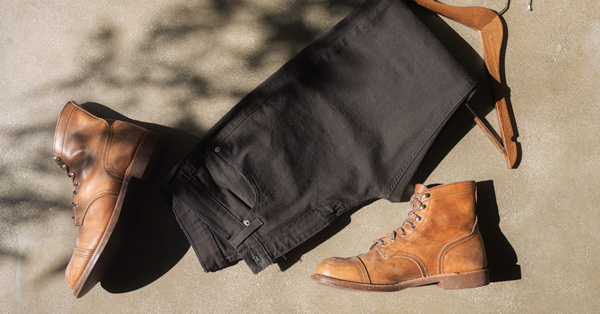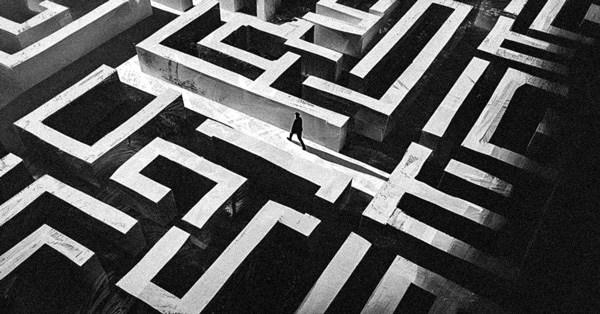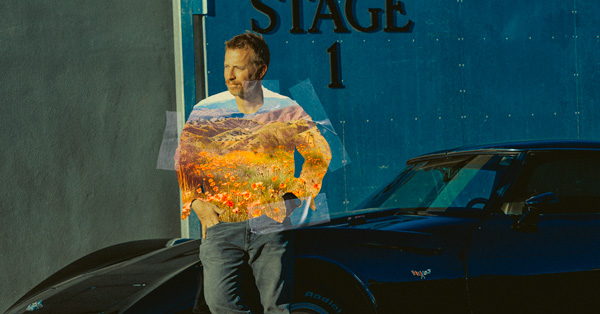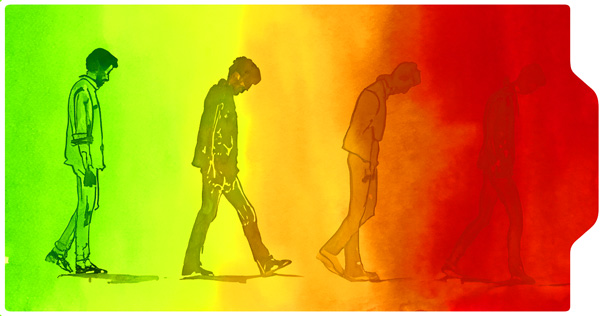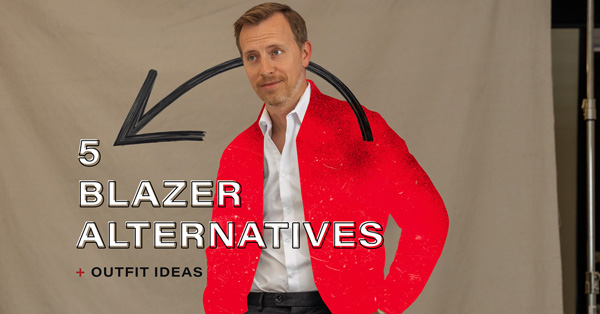I’ve lived much of my life hounded by regret. Once, I commented to a friend over drinks, “Most people measure their lives in achievements. I measure mine in regrets.” The quip was supposed to be funny, but as soon as I said it, I realized that it was incredibly depressing–especially because I wasn’t exactly joking.
Since I was a kid, regrets have kept me up at night. As soon as I closed my eyes, this film began playing back in my head. It was a highlight reel of all my harbored regrets, ranging from this time I mercilessly teased a childhood friend into tears 20 years ago to an awkward social interaction I had in the elevator 12 hours ago. It reached the point where I was downright afraid to go out into the world. Each time I left the house, it felt like I was going on another foray to wrangle up more regrets to bring back with me to my restless bed.
By making light of my regrets, I was trying to defuse them by owning them in a dismissive way. But that’s a mistake. Regrets serve a purpose. They are reminders of prudent actions that we should have taken in the past or corrective actions that are still outstanding. And until we take those actions, those regrets remain, weighing heavily upon the balance sheet of our conscience. I don’t think it’s possible for me to go back in time and undo many of the things that I regret today. But I have discovered a simple way to avoid regrets–be they large or small–in my day-to-day life going forward. If you’ve got 10 minutes to spare, I’ll explain it to you.
Existential Regret
There are many flavors of regret–from buyer’s remorse to the pitfalls of 20/20 hindsight–but the most pervasive and most preventable form of regret is existential regret. I think that’s what keeps most guys up at night, more so than wishing you would’ve bought an iPhone 4 instead of cheaping out on the $49 iPhone 3GS. Existential regret is different because it has to do with your own personal values and ideals.
Existential regret is defined in a paper by Dr. Marijo Lucas as:
A profound desire to go back and change a past experience in which one has failed to choose consciously or has made a choice that did not follow one’s beliefs, values, or growth needs.
That’s the kind of stuff that we end up agonizing over for years, or maybe even a lifetime. The good news is this: Avoiding existential regret is as simple as forgetting about the possible outcomes of your decisions, and instead focusing solely on your actions.
Here’s why:
In the post mortem of any good or bad decision, we tend to reflect upon two things: (1) what positive or negative outcome came about from my decision and (2) how did my actions influence this outcome?
But the trick to that is that we have far less control over the outcomes of situations than we believe.
This is a critical point, because most of us make decisions based on a theory of how our actions will affect the outcome. In practice, this theory is often more faith than science. And in most cases, it’s bad faith.
Outcome-driven Decision Making
Whenever we are faced with a decision that causes us to pause and weigh out our options, what we’re really doing is running through the probable outcomes in our head. Most of us choose our actions based on the following criteria:
- What is the best case scenario if I do x?
- What is the worst case scenario if I do x?
- Which is more likely to occur?
We each have our own thresholds regarding the spread between the best and worst case scenario and the amount of risk we’ll tolerate. But in general, that’s the thought process. This is outcome-driven decision making.
The problem is that, unless you are inhumanly analytical or unusually lucky, you will experience that poor outcome occasionally. If you have poor judgment or have been imbibing, you’ll get that bad outcome more than occasionally. No matter what you do, it’s a gamble. Even if your plan has a 1 in a 1,000 chance of failing, you’re still taking a risk. And given that you’ll probably make a billion or more decisions in your life, those losses are bound to add up. The house always wins.
Complicating the matter is that there are always key pieces of information about the past, present and future that are beyond our knowledge. Oftentimes, this information skews the odds dramatically one way or the other, so that what we think is a 1 in a million chance is really more like a 1 in 10 chance.
Example: Let’s say you hit a car in an empty parking lot and you don’t have insurance. Should you leave a note? If you’re using an outcome-driven decision making process, you might decide, “Hey, there’s nobody here, it’s the middle of the night, and I’ll be screwed if they peg this on me. That guy probably has insurance that covers this, so this isn’t hurting anything, I’m out of here.”
But what you don’t know is that the parking lot is under video surveillance. Note or no note, you’re going to have to answer for this. But now, you’ve just performed a hit and run and are in a whole other world of trouble.
Or, what if the piece of information that you didn’t know was that the vehicle was abandoned and had no owner to speak of? The garage owner was going to have it towed the next day anyway. Knowing that would definitely change your decision making equation–but of course, there’s no possible way you could know that.
The takeaway: In this situation, you are agonizing over whether or not to leave a note, trying to decide which action will produce the least amount of culpability for you. But in reality, the deciding factors–the absence or presence of video cameras and/or an owner for the car–are out of your hands.
When it comes down to it, you can’t control what results from your actions. It’s possible that taking one action or another can marginally increase your chances, but the actual probability is persistently and often deceptively opaque to you. It’s safe to assume that for any decision you are about to make, there are dozens or hundreds of pieces of critical information that are beyond your knowledge. Because of that, any kind of odds that you come up with an outcome-driven decision making process are going to be illusory at best.
Acting on Principle
Deep down, we know that outcome-driven decision making is bad news. That’s why when we consciously make a poor decision that goes against our ideals, our values or the law of the land, we tend to feel guilty no matter what happens. When things turn out poorly, we have a tendency to accept the negative outcome as punishment for compromising our ideals. When things do go as you had hoped, you may still be unable to enjoy your ill-gotten rewards, depending on your personality type.
So, here’s the alternative. For every decision you make, completely ignore any notions you may have about the possible outcomes of the situation. We’ve already established that you can’t control that. Instead, focus on what you can control: your actions in the moment.
And what should influence your actions? Your principles.
I don’t need to tell you that. We all know that being honest, sticking to your integrity and treating others as you’d like to be treated are the tickets to heaven or popularity or success or whatever it is you seek. The key is to keep telling yourself that at critical moments.
This entire piece was inspired by some advice I received from a recovering alcoholic. He said: “Be present, be authentic and don’t invest yourself too heavily in the outcomes of things.” It took me a long time to understand that last bit, but now it makes sense to me.
Now, whenever I find myself slightly doubting the next best action, I run that test in my head.
- Am I being present? Is my head in the moment? Am I giving this decision all of my attention, or am I being distracted by something else?
- Am I being authentic? Am I doing what I would normally do, or am I letting something else influence me? Am I trying too hard to impress someone? Am I star struck, peer pressured or acting out of frustration?
- Am I trying to influence the outcome, rather than choosing the action that I won’t be ashamed of if my ideal outcome doesn’t come to fruition?
I’m sort of an agonizer and procrastinator, and running those quick questions through my head at least three times a day has helped me immensely. Not only am I more decisive, but I also feel less regret at the end of the day. And mostly, it’s the little things that I end up feeling better about. For example, I’ve discovered that my social anxiety holds me back quite often.
I’ve often laid awake at night thinking, “Dammit, I should have said this,” or “I should have introduced myself to this person,” or “I should have cleared the air with this person about this issue.” So, I’ve been able to adapt that test to be more specific. I ask myself, “Am I choosing this action or inaction for a good reason, or am I just afraid that this might lead to another socially awkward situation?”
This often reveals that the reason I didn’t do those things in the moment had more to do with my anxieties about coming off awkward–which I probably would have–than any other dubious reason I had come up with (“Oh, he’s busy and doesn’t want to be interrupted,” or “Oh, he probably doesn’t remember that thing,” or “Oh, she’s sitting there looking at her phone, she’s probably writing an important text message or something.”). The fact of the matter is that no matter what I do or don’t do, I usually feel a bit awkward. But it’s better to be awkward while doing the right thing than it is to be awkward while missing an opportunity.
Act on what you know and don’t burden your decision making process with what you potentially don’t know. It doesn’t matter if you make the right or wrong decision. Getting hung up on that binary doesn’t make any sense, because right and wrong is a moving target–especially if you gauge success on the outcome of the situation. What matters is how the picture looks during that post mortem. By relinquishing any notions of control over the outcome, we can isolate the source of our regrets to our actions. And by consciously choosing our actions, we can eliminate regret.
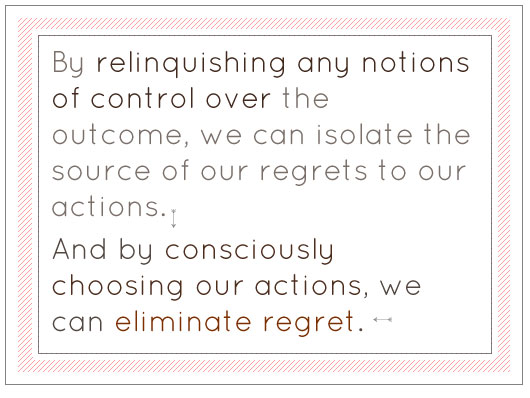
Second, you must always take the appropriate follow-up actions. Because inevitably, acting on principle will occasionally lead to negative outcomes for the same reason that outcome-driven decision making leads to negative results. Too often, an unexpected negative outcome jangles us into inaction, or worse, bitterness. In fact, I’m willing to bet that many of the regrets you are harboring right now are unanswered calls to follow up actions that you never took. Follow-through and follow-up.
The Big Picture
I propose that you always act this way. Always run that test–Am I present? Am I authentic? Am I invested in my actions?–and always do what you feel is the moral or principled thing to do without any regard for the outcome. I know that flies in the face of our pragmatic society, but I truly believe that it will pay off over time, if not immediately.
I don’t mean to get cosmic here–well, actually I do, and I know that I will lose some of you at this point, but I already covered the important stuff, so what the hell–but the universe has a way of rewarding those who stick to their integrity. There doesn’t have to be any kind of divine scoreboard or karma system at work here, I just think that’s the way things unfold. It’s the cumulative impacts of consistently taking conscious and conscientious action that usually add up to our best fortune.
It’s not rocket science.
For example, if I go about the rest of my life being friendly, honest and open to every single person I interact with, I’ll probably forge longer, stronger bonds of friendship with more people than I would if I was standoffish or downright misanthropic. Then, if something catastrophic happens to me, I’ll probably have a more ready and willing network of people to support me, emotionally, financially or otherwise. Or, if one of my friends catches wind of an opportunity that’s a good fit for me, they’ll be more likely to pass it along to me. Overall, I’ll probably live a much happier, more secure and more fulfilling life.
None of that will have happened because of one particular Androcles and the Lion-esque incidence. And in no way will I be able to say that I chose to be social and friendly so that 15 years from now, when my sewer backs up, I get to borrow your drain snake. I do it because it’s the non-sociopathic thing to do at the moment. Think of it as a lifestyle choice. When you die from a heart attack at 42, it’s not because of that last Big Mac you ate before you finally bit it. Nor will eating a stalk of celery when you weigh 1,000 pounds save your life. It’s consistently making sound decisions over time that will lead to a healthy existence.
These are obvious examples where you can draw a direct line from the action to the benefit. But in practice, you won’t likely know how choosing your actions consciously will benefit you, other than by helping you avoid existential regret. And that’s what you should have faith in. You should be steadfast in your ideals and feel confident that by being authentic, the right things will come to you, even if you’re not sure what they will be.
Don’t strategize your life. Don’t try to beat the system with shortcuts or sleight of hand. No matter how smart you think you are, you aren’t clever enough to change the mechanisms of human society for very long. Regret is our psyche’s way of telling us that we’ve taken out a loan from the universe that we haven’t repaid. And if you don’t make good soon, then you’ll default.
The fact that I ask myself everyday whether or not I’m being socially anxious for no reason may seem like a band aid solution, or like I’m just managing my neurosis rather than curing it. But we live in a noisy, noisy world and it makes sense to habitually slow down for 15 seconds of self-examination. Apply it to your own known hang ups–be it materialism, sarcasm, envy, a short temper, overindulgence–and see if you don’t sleep better at night with fewer regrets.



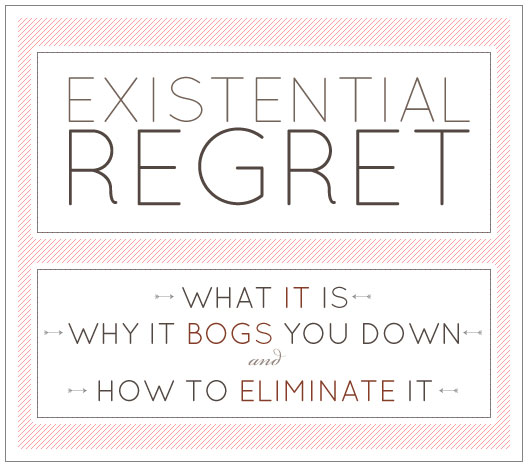
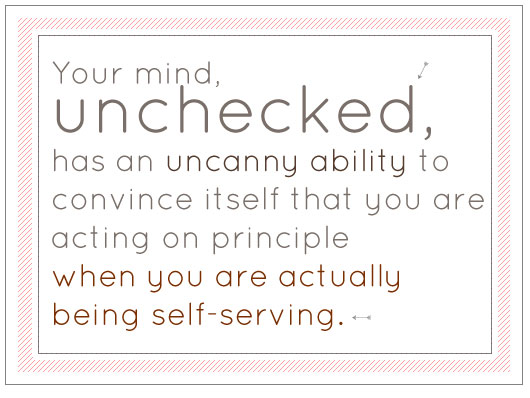

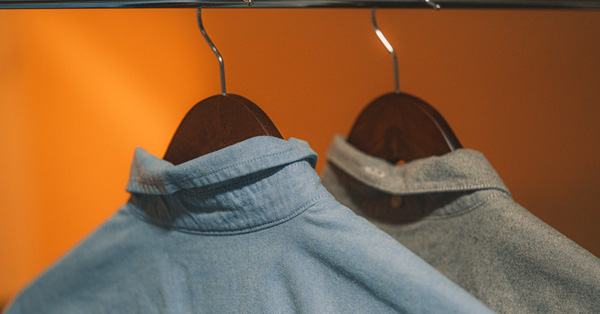
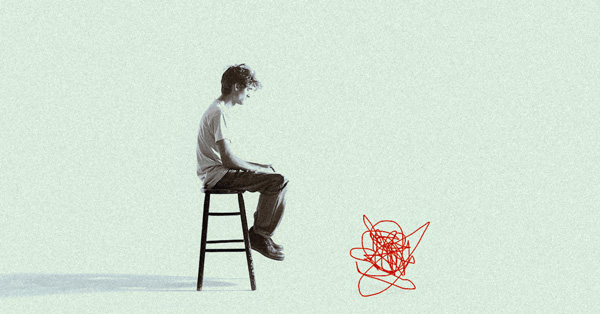
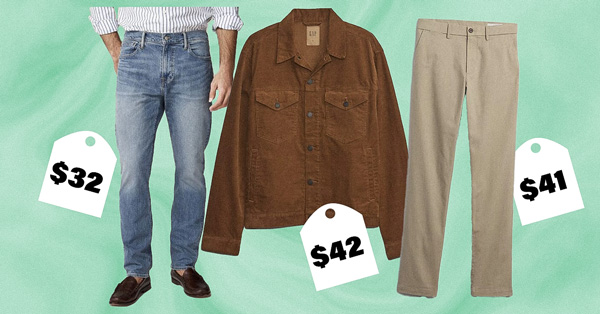

![No, Timeless Style Is Not a Made Up Marketing Term [Essay]](https://www.primermagazine.com/wp-content/uploads/2023/05/timeless-style_feature.jpg)
